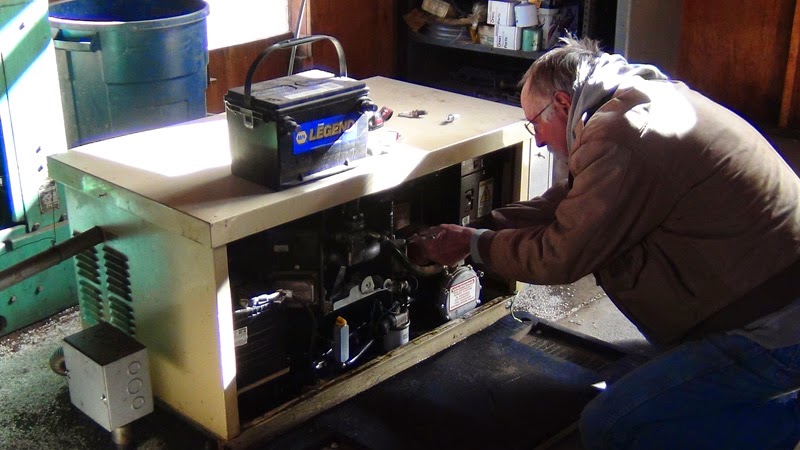 |
| Not much power is generated by solar panels on cloudy days. |
When we got back from a week-long vacation we discovered that one of our big red batteries (the ones that power our house at night) went dead. We thought, at first, that this happened because it had been cloudy and snowy for several days while we were gone and the solar panels were unable to charge the batteries. The first evening we were home our inverter shut off the power due to the battery array dropping below 10.2 volts.
The next morning I measured the voltages of all six of the batteries. Five of them had a pretty good charge - 2.25 volts (they are 2-volt batteries). The sixth battery showed only 1.25 volts. I disconnected it from the system and checked again a few hours later. Zero volts! It had shorted out internally. The batteries were only a little over two years old. We shouldn't have had a failure.
 |
| The substitute battery in place. |
Fortunately we have a back-up generator for higher power loads like our washing machine. We were running the generator for a few hours a day until, one evening, I went out to start it and it wouldn't start. Another problem! This happened during a five day period of cloudy weather, too. Double trouble!
When we moved in here three and a half years ago, the previous residents told us how to turn on the generator. Several times a year we ran the genny whenever we needed more power than the solar panels or batteries could deliver. It always worked but was often not easy to get started. I began to wonder when the generator was last serviced and couldn't find any record of it.
 |
| Replacing spark plugs in the generator |
We are back to running the generator two or three hours in the evenings so we can watch a movie and run the washing machine, run power tools, grind coffee, etc. We are still waiting for the replacement battery. It is supposed to come in next week and then we will be back to better than normal - better because the back-up generator is in much better shape than it had been.
Such is the saga of off-grid living. When the power goes out, the power company is you!
No comments:
Post a Comment